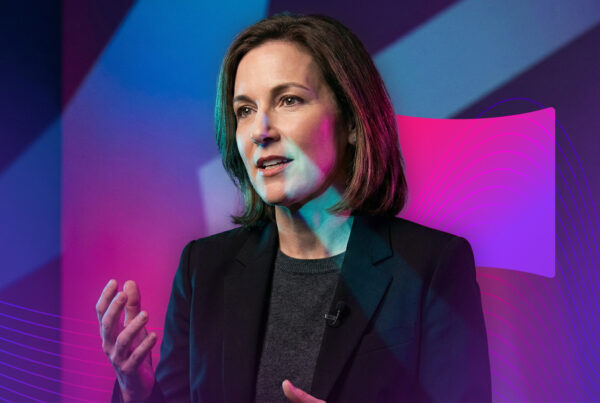 Gretchen Roberts has worked part-time as a freelance writer since 2003, gaining impressive clips in publications like Real Simple, Woman’s Day, Cooking Light, and Wine Enthusiast. How does she squeeze so much work out of just 20 hours a week? Roberts shared her strategies (and the strategies of other successful part-time writers) in Full-Time Income in Part-Time Hours, an ebook she self-published earlier this year.
Gretchen Roberts has worked part-time as a freelance writer since 2003, gaining impressive clips in publications like Real Simple, Woman’s Day, Cooking Light, and Wine Enthusiast. How does she squeeze so much work out of just 20 hours a week? Roberts shared her strategies (and the strategies of other successful part-time writers) in Full-Time Income in Part-Time Hours, an ebook she self-published earlier this year.
Ebyline asked Roberts about her experiences in self-publishing, writing online, and breaking into new niches.
What was the biggest challenge in self-publishing an ebook? How did you overcome that challenge? Did you outsource any aspects of the ebook?
 My biggest challenge was simply trying to figure it all out from scratch. This genre is so new, there’s not a lot out there in terms of step-by-step resources. I also had to keep myself on track and set goals and deadlines for each part of the process: outlining, writing, copyediting, cover, design, website, marketing, etc., with my target launch date the end goal. With no one breathing down my neck, the work could have been too easy to push off to another day, which turns into another day….
My biggest challenge was simply trying to figure it all out from scratch. This genre is so new, there’s not a lot out there in terms of step-by-step resources. I also had to keep myself on track and set goals and deadlines for each part of the process: outlining, writing, copyediting, cover, design, website, marketing, etc., with my target launch date the end goal. With no one breathing down my neck, the work could have been too easy to push off to another day, which turns into another day….
I designed my own cover and the PDF version of the book, resurrecting some long-buried experience in layout and design from my former newspaper special section days. The best decision I made was to get a good copyeditor (www.sandrahume.com). I originally intended for her to look for grammatical errors and awkward sentences, but she did so much more, suggesting ways to make the content stronger. It was worth every penny.
You probably get tons of requests for advice from newbie writers or prospective clients who aren’t ready to open their wallet, and those requests can really eat into your time, even when you’re freelancing full time. Do you have a gracious way to handle those requests?
When a writer emails some version of “tell me how to freelance,” I send a quick response back with a couple of book suggestions and a “good luck!” I could be wrong about this, but I don’t believe someone who isn’t willing to do their own basic research for their own career will make a good writer, researcher, and businessperson. That said, if someone emails with a specific question or two, and I can tell she’s done her homework first, I love to help. So many amazing writers helped me when I first started out, and I am profoundly grateful to them to this day. I like to give back…but preferably when the person asking is diligent and serious about writing.
As to prospective clients, the first thing I try to do is avoid clients who want a full-fledged story proposal (or three) before they’ll even consider sending a contract. I will spend quite a bit of pre-contract time with my corporate clients, but that’s because the stakes are often higher and I need to sell myself specifically to them. If they’re pushing for too much, I say something like, “As soon as you’re ready to start the project, let me know and I’ll draw up a contract,” or something similar to let them know it’s time to commit.
I’d imagine wine writing is a tough niche to break into. Any insights into how you broke in or how other freelancers could follow suit?
Another writer, Erik Sherman, clued me in to this stepping-stone process. I started out as a home and garden writer; then, I took a food-writing class at Stanford University’s continuing education program. I used that class to pitch a monthly food column to my local magazine. With those clips, I began writing about food for Wine Enthusiast’s Pairings column. When my editor suggested I could write the wine pairings myself, I jumped on it. I’ve spent hundreds of hours studying and tasting wine. It’s not a bad job, really!
My advice for other writers is to decide where you want to go, and then plot a path to get there. How do you go from writing about, say, education to writing about wine? Education – how sommeliers are trained – sommelier profiles – winery owner profiles – wine. You may not follow that exact path, but you do need to have a vision and a drive to get there.
Any closing thoughts on this brave new world of online journalism?
Wow, that’s a deep question! Freelancing has changed tremendously since I started in 2003—which wasn’t even that long ago, but back then, no one wrote for online publications. I think even several years into my freelancing career, websites made up just a tiny percentage of my overall income. Now they’re probably close to half.
Brave new world is right, too, in the sense that no one really knows yet how to make money online, and many markets compensate by not paying their writers, or paying very little. My advice is to avoid websites that don’t respect the very people whose content provides the eyeballs they need to generate revenue. There are plenty of websites that pay writers a decent wage. Find them, and write for them. If you write for free, don’t do it for exposure. Do it because you have another product to sell, whether that’s a book, or an ebook, or consulting, or your day job.







